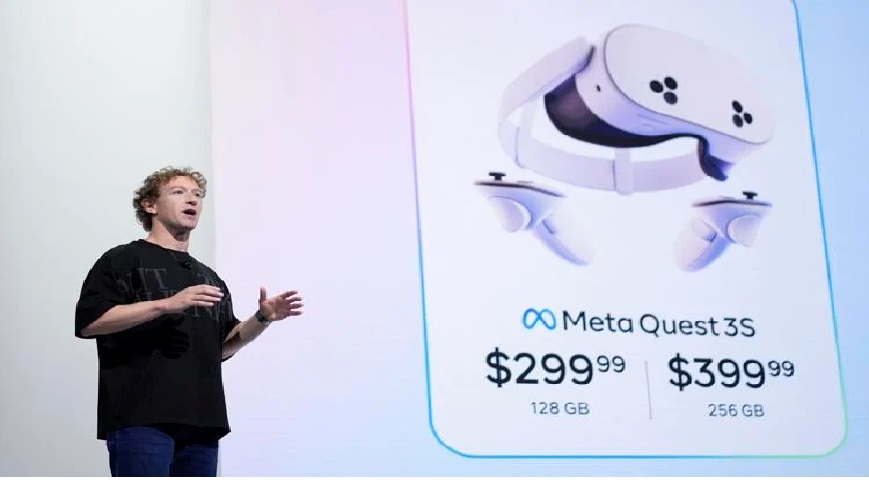Meta CEO Mark Zuckerberg introduced the company’s latest augmented reality (AR) glasses, called Orion, showcasing revolutionary features that enable users to overlay digital content—such as media, games, and communication—onto the real world.
Zuckerberg described this innovation as a major step forward, marking a transition from conventional desktops and smartphones to eyewear designed to enhance everyday experiences.
“Many have called this the craziest technology they’ve ever seen,” exclaimed Zuckerberg during his keynote speech, where he sported a shirt reading “Aut Zuck aut nihil,” a playful nod to Roman history.
A pre-recorded demonstration illustrated the glasses’ potential, featuring a virtual Pong game and video chatting in augmented reality.
Additionally, Meta emphasized its commitment to artificial intelligence, announcing advancements for its ChatGPT-like chatbot, Meta AI. Notably, users can now instruct the assistant to respond in the voices of celebrities, including Dame Judi Dench and John Cena.
Did you read this?
“Voice interaction will transform how we communicate with AI,” Zuckerberg stated, with Meta reporting over 400 million monthly users for Meta AI.
In product updates, Meta introduced the Quest 3S, an entry-level mixed-reality headset priced from $299.99, set to replace older models while offering improved performance.
Although the first generation of Orion glasses is slated for internal testing, commercial release is expected by 2027, pending further technological enhancements to reduce production costs.
Turning heads in the AR market, Meta also reported success with its Ray-Ban Meta smart glasses, which surged in popularity thanks to an AI-powered digital assistant.
With over 700,000 units shipped, Meta’s expansion into AI-enhanced eyewear continues to gain traction, setting the stage for an exciting future in augmented reality.









